General Election 2017: Why are schools used as polling places?
- Published
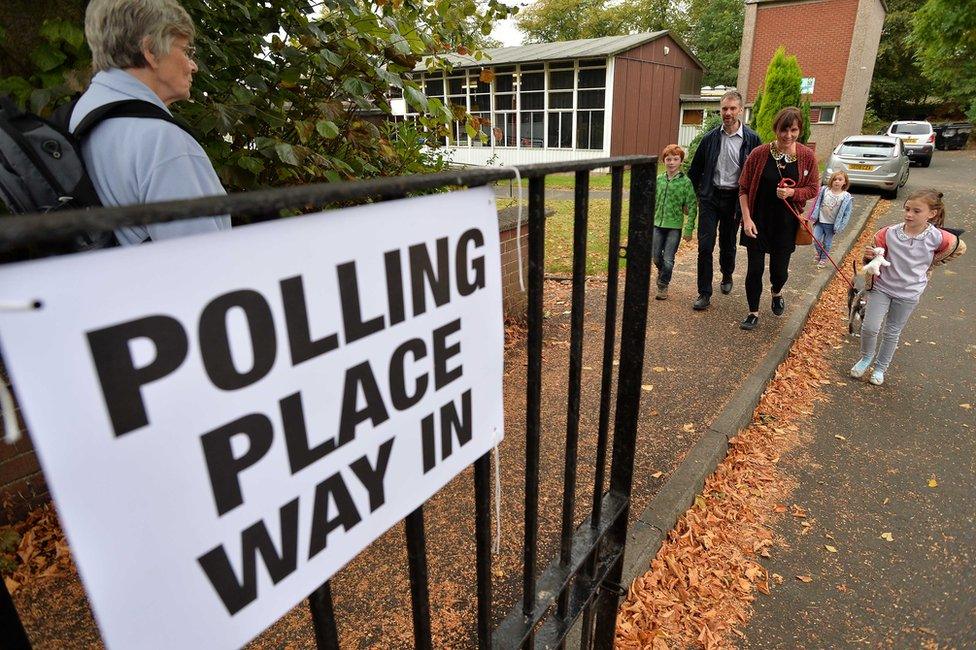
For the second time this term many parents in Scotland are having to cope with the disruption of their child's school being used as a polling place for an election.
The UK general election is the sixth time in less than three years that Scotland has gone to the polls.
The Electoral Commission, which sets out guidelines for how the election process should be conducted, said it had not received complaints about schools being used as polling places until recent years.
Why are schools used for voting?
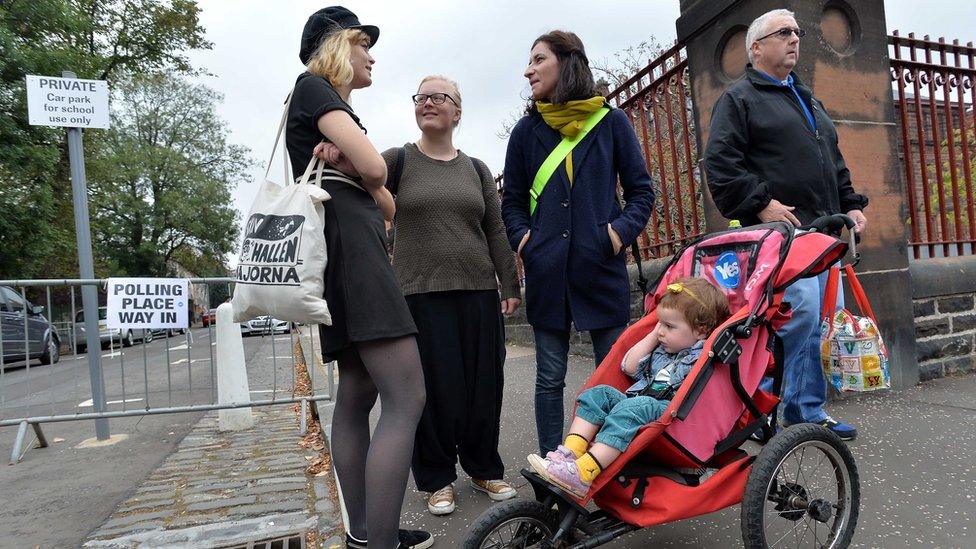
Historically, primary schools were the most likely venue for casting votes because every community has one, according to Mary Pitcaithly, convener of the Electoral Management Board for Scotland (EMB), which has a key role in delivering elections.
They are also...
free to use
within the control of the local authority
and comply with public liability health and safety laws.
Ms Pitcaithly told BBC Scotland that, in the past, the electoral cycle would have been expected to throw up two ballots every five years - one for Westminster and one for the local council.
This was not considered to be a major problem, she says.
However, Scottish Parliament elections, European elections and a rise in the use of referendums have increased the number of days lost to school children.
Ms Pitcaithly, who is also the returning officer for Falkirk, says more people have complained in recent years and she has moved her own authority away from using schools.
She says Falkirk now only uses "a handful" of schools.
"The starting point now is to ask if there is another alternative that would not disrupt the education of young children," she says.
Are school days being lost?
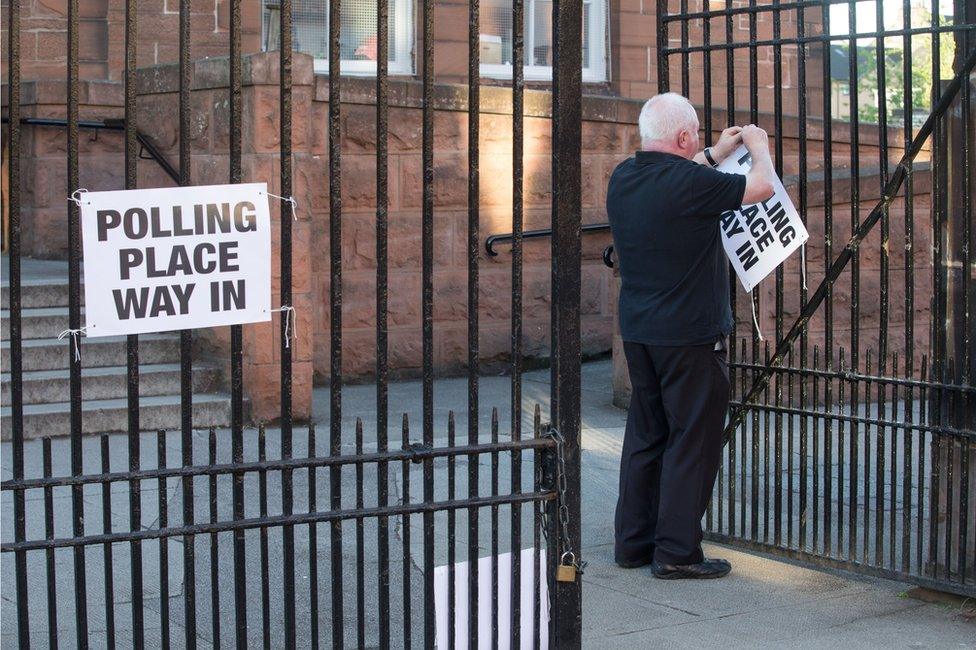
Eleanor Coner, from the Scottish Parent Teacher Council, says she thinks local authorities are listening and trying to find alternative venues.
She says: "We should try to have as little disruption to schools as possible. Just because we have always done it does not mean it is right."
"In large towns and cities I would question whether there is the need to use schools, often there is another community space that could be used."
Ms Coner says that this election in particular has been a challenge for parents and schools because it was called at short notice.
Theresa May's announcement of a snap election, three years ahead of schedule, could not have been foreseen by those making arrangements on the ground.
A spokeswoman for the EIS teachers' union told BBC Scotland the closure of schools on polling days had "long been the case" but "the large number of elections and referendums in recent years has led to a greater number of school days being lost".
She says: "The closure of schools - at fairly short notice in this case - can have an impact on the learning experience for pupils as well as significant childcare implications for parents."
When elections are planned well in advance, such as the local council elections in May, some local authorities choose to schedule teacher in-service days for the day of the ballot.
This means that pupils will not miss out on a day of school.
Can part of the school be kept open?
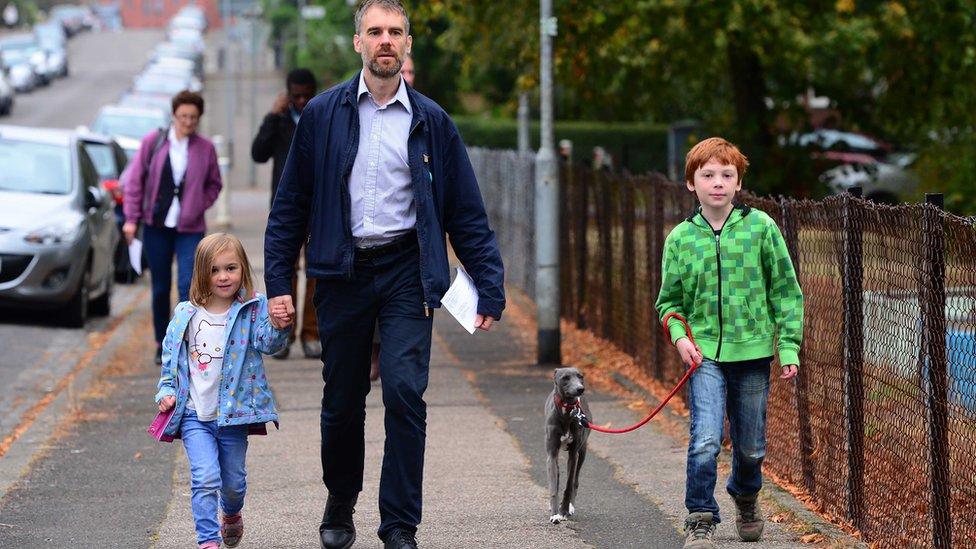
It is commonly thought that using a school as a polling place automatically means it has to close.
Ms Pitcaithly says this does not necessarily have to be the case.
If the polling stations can be kept completely separate from the activities of the school then part of the building can still house pupils.
However, that often proves more difficult than it first appears.
The polling station area must be securely isolated from the rest of the school, preventing members of the public coming into contact with the children.
The way the public gains access to the polling station must also be considered, for instance the need to cross playgrounds or access for voters with disabilities.
And although it is often just one room that is used for casting votes, access to toilets, washrooms and drinking water must be unrestricted.
What are the other options?
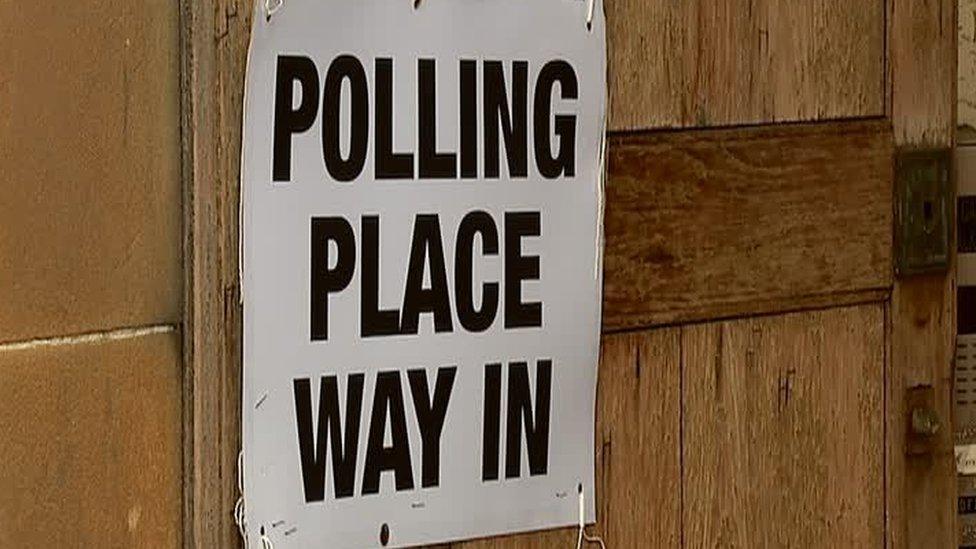
Ms Pitcaithly says: "The difficulty is that there often isn't an alternative. If we use a church hall or a commercial building we need to make sure it fulfils all the requirements such as disabled access.
"In Falkirk, we have got a vacant shop premises that we are using for the day but it needs to be cleaned up and fitted out so it is quite an undertaking.
"Sometimes portable buildings are used but the difficulty there is that they need to be compliant with the disability act."
She says it can be costly to set up a polling place for just one day.
Ms Coner, from the Scottish Parent Teacher Council, says local authorities need to be a "bit more creative" in finding venues and not stick to what they have always done.
She says in East Lothian, where she lives, they have moved away from using schools and now use a local community centre.
"We are lucky to have that, not everywhere has one," she says.
Scotland's 32 local authorities are responsible for the polling places within their area.
Schools are 'last resort'
This explains why different approaches are taken across the country.
Some have tried to find alternative venues while others are still heavily reliant on schools.
They are required to review their polling districts and polling places every five years.
Ms Pitcaithly says: "The bottom line is that we don't start with polling places in schools. It is a last resort."
She says she can't direct other returning officers on how to conduct their polls but she is happy for her Electoral Management Board to "look again" at the guidance given on whether schools should be used.